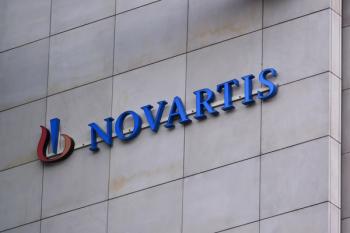
The Evolution of Healthcare Communication: Bridging the HCP-Patient Divide
Key trends in healthcare communication to build trust between healthcare providers and their patients.
In a world riddled with misinformation online, trust-building between healthcare providers (HCPs) and their patients has become more important than ever. Being ill is stressful enough. Knowing who can deliver reliable, timely information at the point of diagnosis and beyond is essential. Studies have shown that high patient engagement serves for better health outcomes while simultaneously reducing medical costs. In light of technological advances such as global digital platforms and AI-assisted devices, the ability for HCPs to communicate with patients has become easier than ever.
Over the past few years, the pharmaceutical industry has increasingly recognized the importance of enhancing communication between healthcare providers and patients. As the healthcare delivery ecosystem and its accompanying technological competencies continue to evolve, so do the methods and technologies that facilitate the relationship between HCP and patient. As a result, several key trends in healthcare communication have emerged.
Personalized Communication Through Data Insights
The rise of big data and artificial intelligence (AI) has enabled pharmaceutical companies to offer tailored solutions to HCPs and patients. By leveraging electronic health records, wearable devices, and patient-reported data, pharma companies can support HCPs in delivering personalized treatment recommendations. For instance, AI-driven platforms can analyze patient data to identify potential adherence barriers or suggest treatment options based on genetic and lifestyle factors.
AI-powered chatbots are also transforming HCP-patient communication by providing instant responses to frequently asked questions. These agents can assist patients with medication schedules, side effect management, and general inquiries, freeing up HCPs to focus on more complex patient needs. They are not replacing HCP engagement, but rather enhancing it by allowing them to act more quickly on their patients’ most urgent concerns. Individualized medical solutions can be managed more efficiently through a digital network of healthcare professionals with access to up-to-the-minute medical information. Pharmaceutical companies are designing AI technology that aligns with HCP workflows and supports personalized patient interactions. However, data can only support the patient journey to a certain degree. The role of HCP is still key in influencing positive patient outcomes. It is one of the reasons why accessible healthcare information for both HCPs and patient is essential.
The adoption of telemedicine and mobile health apps has surged, especially after the COVID-19 pandemic. These tools enable seamless, personalized communication between HCPs and patients, allowing for remote monitoring, virtual consultations, and real-time updates. Pharmaceutical companies are increasingly integrating digital health solutions into their offerings, providing HCPs with platforms to educate and engage patients effectively. But the patient journey does not stop there. Patient involvement and education are cornerstones for treatments to be most effective.
Patient Education and Empowerment
Patients are no longer merely passive recipients of healthcare; they are encouraged to be active participants in their treatment journey. The rise of patient advocacy through social media channels and other public platforms is witness to this trend. In addition, patient ambassadors that support researchers and healthcare industry professionals provide a strong network of experts to showcase their latest findings fast and effectively to patient communities.
Furthermore, professional healthcare organizations are developing resources such as interactive educational materials, videos, and podcasts to empower patients with medical experts who offer vision and guidance on various health conditions. These materials, along with HCP-focused content to offer quick facts about patient conditions, are often designed to simplify complex medical information, making it easier for HCPs to convey treatment benefits, risks, and adherence strategies to their patients in real time.
By understanding factors that influence patient behavior, pharmaceutical companies can develop tools and strategies that drive better adherence and health outcomes. For example, nudges such as appointment reminders, gamified medication tracking apps, or motivational messages can encourage patients to effectively maintain their treatment plans.
Omnichannel Communication Strategies and Cultural Sensitivity
Pharmaceutical companies are adopting omnichannel strategies to ensure consistent messaging across multiple touchpoints and publication extenders. This approach allows HCPs and patients to consume medical information via their preferred channels at their convenience, whether it’s email, text messaging, audio, patient portals, social media or webinars. In fact, science communication can be as simple as a 60-second video about a particular health topic to convey information in an easy-to-understand format. By choosing both the right channels and the right format at the right time, pharma companies enhance the HCP and patient experience and ensure continuity of care.
As healthcare becomes more globalized, the need for culturally and linguistically sensitive communication is paramount. Pharmaceutical companies are investing in multilingual resources and culturally tailored messaging to help HCPs connect with diverse patient populations. This trend underscores the importance of equity in healthcare communication and ensures better outcomes for underserved communities, particularly for those countries with under-resourced research funding. Making clinical research in medical publications open access for those countries is one way how medical publishers can help to offset these disparities.
Bridging the Divide
The pharmaceutical industry’s role in enhancing HCP-patient communication is more critical than ever. Building trusted resources and avenues for both HCPs and their patients has long-term effects on the health of society—and the world—as a whole. It’s also a critical step to advance medical education in any given therapeutic field or disease area.
By embracing these trends, companies can empower HCPs to deliver personalized, effective, and empathetic care. As technology and patient expectations continue to evolve, the focus on innovative and patient-centric communication will remain a cornerstone of positive healthcare outcomes.
Mitja Alexander Linss, Head of Marketing, Karger Publishers
Newsletter
Lead with insight with the Pharmaceutical Executive newsletter, featuring strategic analysis, leadership trends, and market intelligence for biopharma decision-makers.




